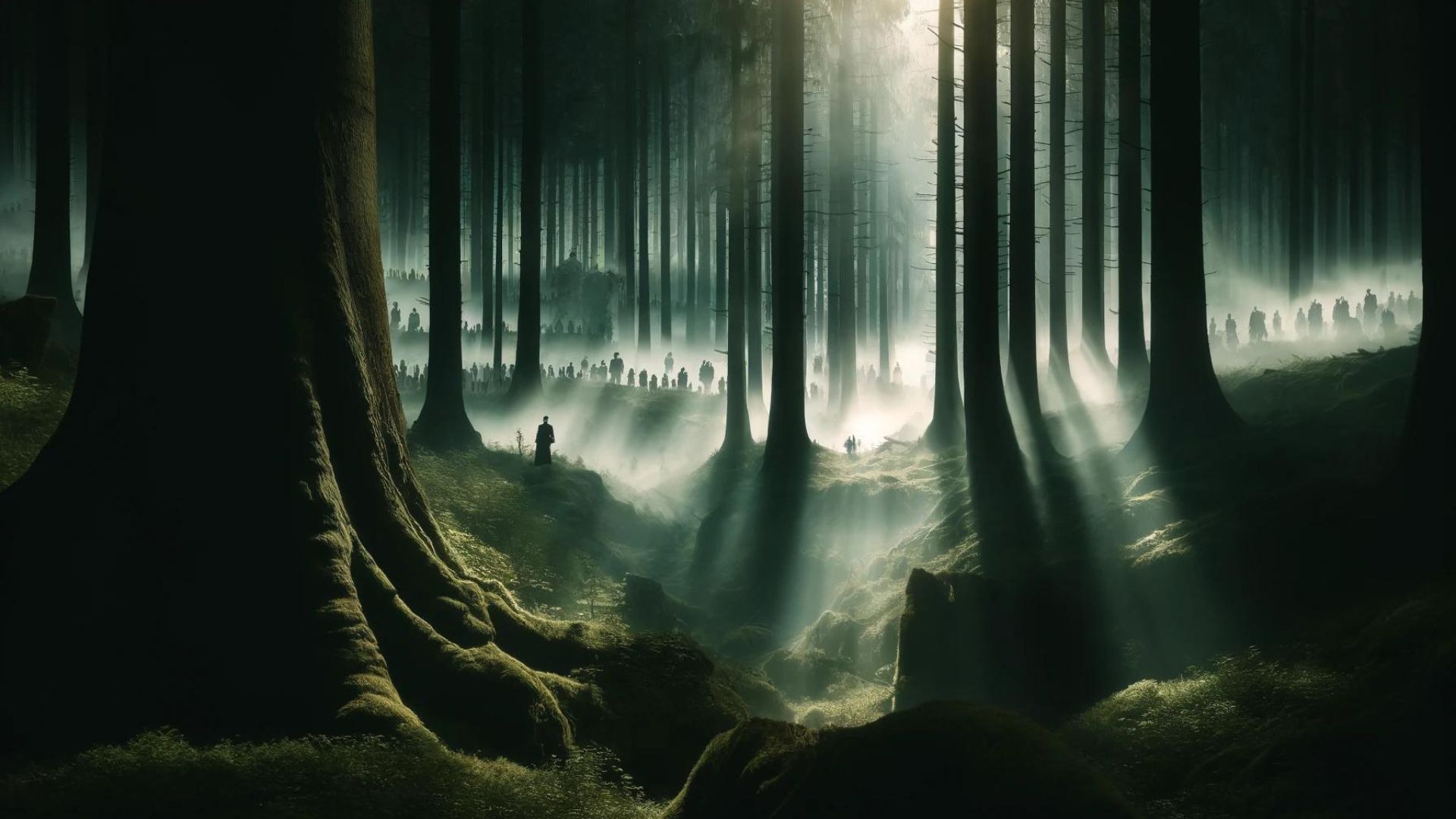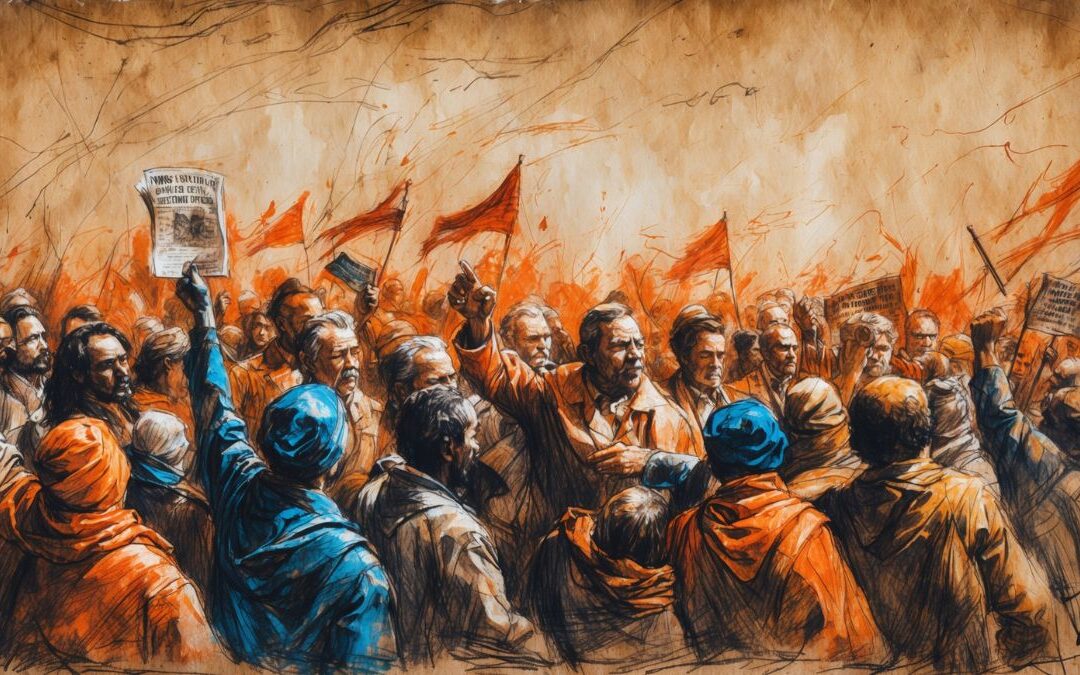Teutoburg Forest: When Victory Tastes of Ashes
Imagine standing amidst towering trees, their branches swaying in a mournful breeze. The ground beneath you is scarred, not just by roots, but by the ghosts of a battle fought nearly two millennia ago. This is Teutoburg Forest, a place where the Roman Empire suffered one of its most humiliating defeats.
In 9 AD, three Roman legions, led by Publius Quinctilius Varus, marched into this dense woodland, lured into a trap by Arminius, a Germanic chieftain who had served in the Roman military. Over three days, the legions were annihilated. It was a victory for the Germanic tribes, a blow to Roman expansion, and a chilling reminder of the brutality of war.
The Illusion of Triumph
You might think, “But surely, a victory is a victory, isn’t it?” Not always. The Battle of Teutoburg Forest is a prime example of a Pyrrhic victory – a triumph so costly that it is essentially a defeat.
Rome lost thousands of soldiers, experienced a major setback in its territorial ambitions, and the psychological impact was immense. The massacre haunted the empire for years, with emperors like Augustus reportedly crying out, “Varus, give me back my legions!”
The Germanic tribes, while momentarily victorious, gained no lasting peace. They remained fragmented, eventually falling prey to internal conflicts and external pressures. The Teutoburg victory did not pave the way for a unified Germanic empire. Instead, it sparked decades of further warfare and instability.
Echoes Through Time
The Battle of Teutoburg Forest is not just a historical footnote. Its echoes reverberate through the ages, reminding us of several timeless truths:
- The Futility of War: War rarely brings lasting solutions. It often leads to cycles of violence, revenge, and further conflict.
- The Human Cost: Behind every battle are countless individual stories of suffering, loss, and trauma. The soldiers who perished in the Teutoburg Forest were not just numbers; they were sons, brothers, fathers, each with hopes and dreams that were cut short.
- The Importance of Peace: While peace may seem like an idealistic dream, it is a necessity for human flourishing. It allows societies to prosper, cultures to exchange ideas, and individuals to live fulfilling lives.
Your Call to Action
You might be wondering, “What can I do? I’m not a world leader or a peace negotiator.” You don’t have to be. Each of us has a role to play in building a more peaceful world.
Start by fostering peace in your own life and relationships. Be kind, compassionate, and understanding. Challenge prejudice and promote dialogue. Support organizations working towards peace and reconciliation.
Remember, the pursuit of peace is not a passive act; it requires courage, determination, and a willingness to confront injustice. It is a journey, not a destination. And while the road may be long and winding, the rewards are immeasurable.
The ghosts of Teutoburg Forest may still whisper in the wind, but their message is clear: War is a monster that devours its own children. Let us strive for peace, not just as an abstract ideal, but as a living reality that we build together, one step at a time.
Why Should You Care?
The Battle of Teutoburg Forest is not just a dusty historical event. It holds vital lessons about the consequences of war, the illusion of victory, and the enduring importance of striving for peace. Understanding these lessons can help us make more informed decisions about conflict resolution in our own lives and in the world around us.
Key Takeaways
- War’s Futility: War rarely brings lasting peace or solutions. It often perpetuates cycles of violence and suffering.
- Human Cost: Every conflict has a devastating impact on individuals, families, and communities.
- Peace as a Necessity: While peace may seem elusive, it’s essential for human flourishing and societal progress.
- Personal Responsibility: Everyone has a role to play in building a more peaceful world, starting with our own actions and relationships.
Keywords & Definitions
- Teutoburg Forest: A location in Germany where the Roman Empire suffered a major defeat in 9 AD.
- Roman Empire: A vast ancient civilization that dominated much of Europe, North Africa, and the Middle East.
- Germanic Tribes: A group of diverse peoples who inhabited parts of northern Europe and clashed with the Roman Empire.
- Arminius: A Germanic chieftain who led the ambush against the Roman legions in Teutoburg Forest.
- Publius Quinctilius Varus: The Roman general who led the legions into the disastrous battle.
- Pyrrhic Victory: A victory so costly that it is essentially a defeat.
- Futility of War: The concept that war rarely achieves its intended goals and often causes more harm than good.
- Human Cost of War: The suffering, loss, and trauma experienced by individuals, families, and communities affected by conflict.
- Peace: The absence of war and violence, characterized by harmony, cooperation, and mutual respect.
- Personal Responsibility: The idea that each individual has a role to play in creating a more peaceful world.
Frequently Asked Questions
- What were the long-term consequences of the Battle of Teutoburg Forest? The battle marked a turning point in Roman expansion, effectively halting their advance into Germania. It also fueled a sense of vulnerability within the empire and led to a more cautious approach to military campaigns.
- How did the Germanic tribes benefit from their victory? While the victory initially boosted their morale and prevented further Roman incursions, the Germanic tribes did not achieve lasting unity or stability. They remained divided and eventually succumbed to internal conflicts and external pressures.
- Are there any modern-day parallels to the Battle of Teutoburg Forest? Yes, many modern conflicts share similar characteristics with the Teutoburg disaster. They often result in Pyrrhic victories, where the supposed winners incur immense losses and fail to achieve their objectives. The ongoing wars in the Middle East, for example, have caused widespread devastation and suffering without bringing lasting peace or stability.
Myth Buster
- Myth: The Battle of Teutoburg Forest was a decisive victory for the Germanic tribes, leading to the downfall of the Roman Empire.
- Reality: While a significant setback, the battle did not cause the immediate collapse of Rome. It took centuries of internal and external pressures for the empire to finally crumble.
Let’s Talk
- Do you think the lessons of Teutoburg Forest are still relevant today? How can we apply them to current conflicts and global issues?
- In what ways can individuals contribute to building a more peaceful world? What actions can we take in our daily lives to promote peace and understanding?
Share your thoughts and opinions in the comments section below! Let’s engage in a meaningful conversation about war, peace, and the enduring lessons of history.











0 Comments